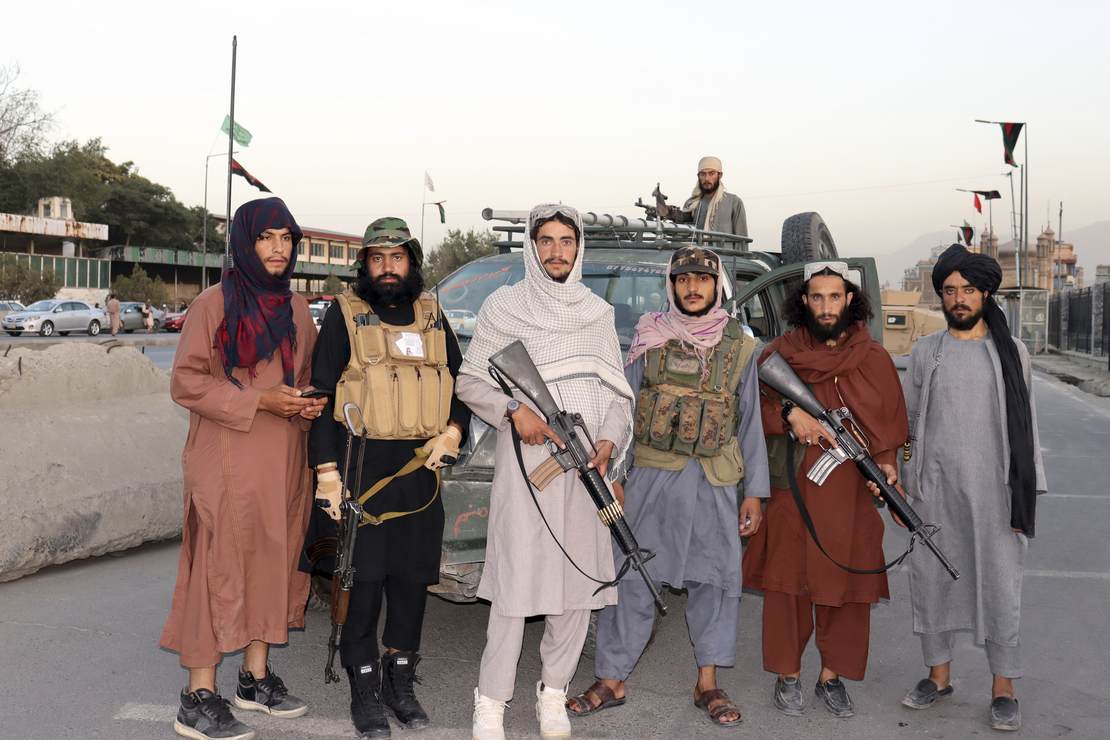
Today marks the first anniversary of the beginning of the final withdrawal from Afghanistan. On August 15, 2021, the Taliban seized control of Kabul, and the government of President Ashraf Ghani dissolved and hopped the first thing smoking out Kabul International for the French Riviera, bringing down the curtain on our two-decade war in that godforsaken country.
Today, we have a couple of retrospective pieces on the front page dealing with the subject. My friend Dennis Santiago posted an interview with the intrepid Hollie McKay (The Fall of Afghanistan: Hollie McKay Shares Her On-the-Ground Reflections One Year Later) that is a must-read. Jim Thompson has his offering in Afghanistan Debacle, Illustrated in Three Parts. Finally, Levon Satamian covers General Jack Keane’s interview on FoxNews on the subject, One Year After the Disastrous Afghanistan Withdrawal, General Jack Keane Says ‘Taliban in Charge.’
It is Jack Keane’s commentary that I want to address.
GEN. JACK KEANE: It’s a year later, and it’s still hard to fathom what we did here. The president made a huge strategic error, in my judgment, in declaring an unconditional withdrawal with a date certain in Afghanistan, which turned out to be an unconditional surrender. And now we have the Taliban in charge doing what they were doing 20-plus years ago: providing sanctuary to al Qaeda. Now, we know in those 20 years and for the sake of our troops and our intelligence service and our contractors who were there providing service. I mean, your mission was accomplished. That mission was to prevent the radicals inside of Afghanistan from attacking the United States. That did not occur. We have had no foreign terrorist attack on the United States from Afghanistan. But what a debacle this decision has created. It’s an accelerant for our adversaries, as we can see. And Russia and Ukraine, China and Taiwan and the mischief that the Iranians are up to in the Middle East, to be seen. And the devastation is, as Trey pointed out, as is clear and evident, the suffering of the Afghan people, what they’re leaving behind, close to 80,000. I mean, how shameful is that, that we were not committed to get everybody out for as long as it took, and we should have insisted upon that with the Taliban and put our feet to the fire and just told them straight up: listen, we’re going to stay here and get our people out. You are now in Kabul, and we know where you are. If you’re going to stop us from doing that, then you’re going to feel the might of the United States on you as a result of it. But no, we folded out and left, and we left them behind. It’s a sad situation. It’s still, as I said, difficult to accept what we did.
Keane is one of the very few credible general officers acting as cable news contributors because he calls things pretty much down the middle. Still, he falls into the error I posted on a few weeks ago, Why Are People Who Should Know Better Beginning to Agitate for a Return to Afghanistan?
I think Keane conflates two separate issues: the withdrawal as a policy and the way the withdrawal was executed.
The conduct of the withdrawal was shameful in the extreme. If we had to deploy more troops to Afghanistan to create the conditions for an orderly withdrawal, and I think that is clearly the case, we should have done so. That said, once we elected to use Hamid Karzai International Airport for the evacuation and not the more remote Bagram, we became like Blanche DuBois in A Streetcar Named Desire, depending upon the kindness of strangers to make the situation work. The fact that the commander of CENTCOM seems to have had his feelings hurt by the Taliban violating the agreement they had hashed out with the US on seizing Kabul is more than a little pathetic.
[embedded content]
READ RELATED: RNC chief warns big donors: We're getting badly outspent and it might cost us the Senate
Equally shameful is that no one, military or civilian, has been called to account for this goat rope.
There are other parts of Keane’s assessment where I think he goes off the rails.
First and foremost, where we arguably owed evacuation to people and their families who directly worked with the US military, the line needs to be drawn there; see Biden Administration Not Challenged as Details Emerge of Hundreds Evacuated From Afghanistan Over the Past Year. The people we allowed into this country as “refugees” were frequently criminals, security risks, and hardened sex offenders. We didn’t take the time to vet these people before evacuation, and we will pay the price for that decision for years. Yes, living in Afghanistan sucks. But we didn’t put these people in Afghanistan, and we don’t owe them a way out unless they worked for us.
Second, if al-Qaeda returns, that will reflect an absence of will on the administration in charge, but al-Zawahiri hiding out in Kabul is not the same as al-Qaeda building training camps. One of these is not a threat; the other should be summarily dealt with.
Third, it has been evident for at least a decade that the government we propped up in Kabul could not survive on its own. It lacked popular support. The government itself didn’t believe it could survive. That reflects a strategic failure that goes back to April 2002 when President George Bush decided the October 2001 mission of killing people and breaking things had succeeded, and now we needed to import democracy and build schools for girls. This, in my view, was never possible unless the Pashtun and related cultures were stamped out and replaced with something distinctly non-Afghan. Of course, the Taliban took over. The Taliban had popular support, and they govern by a code that we find unpalatable but understood and accepted by the people of that country. I will contend that we burned down any popular support we’d built by trying to impose a foreign and hostile culture upon a people who were perfectly happy with their own culture.
In my earlier post, I say:
In my long-held view, our best play was to leave in 2002 and make it clear that if things started regressing, we’d be back to kill people and break things. I think the CIA whacking long-in-the-tooth, out-of-the-loop al-Qaeda chieftain Zayman al-Zawahiri is a validation of the withdrawal (Al-Qaeda Chieftain Ayman al-Zawahiri Killed by CIA Drone Strike). Yes, the Taliban gave their word they wouldn’t shelter terrorists during the negotiations process, but did anyone really believe it? We located al-Zawahiri, rumor has it that he was ratted out by one of the Taliban factions, and we killed him.
Afghanistan is over. Our strategic interest there is limited to ensuring that it doesn’t harbor terrorist training camps. I dearly hope we have learned some lessons about hubris and the folly of expecting US military power to impose widespread cultural changes. We killed and maimed a lot of fine young men and women by sending them on a fool’s errand, and it would be great to hear some of the architects of this strategic failure say, “I’m sorry,” but that ain’t happening. It would be awesome if the people who refused to plan for the evacuation hoping they could delay our departure, went to prison, but I’m not holding my breath. We owe Afghanistan nothing beyond having the good sense never to go back there.
Source:





